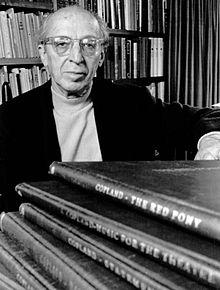You are here
A Trip to the Old West
Aaron Copland, born in Brooklyn on Nov. 14, 1900, was destined to become one of America's most renowned composers. He first learned to play the piano from his older sister; at 16, he studied under the tutelage of Rubin Goldmark in Manhattan, which also allowed his interest in classical music to flourish, attending concerts by the New York Symphony and Brooklyn Academy of Music.
Before his other masterpiece “Western ballets,” Rodeo and Appalachian Spring, Billy the Kid premiered in 1938 in Chicago at the Civic Opera House. Lincoln Kirstein, popular New York writer and eventual co-founder of the New York City Ballet, became fascinated with a biography of Billy the Kid, and earlier in 1938, commissioned a ballet from Copland. At first unsure if he was suitable for the role, he was convinced after learning Henry McCourty (Billy the Kid's birth name) was born in New York City.
The suite unfolds like a musical Western, moving through vivid scenes that follow the legend of Billy the Kid. It opens with “The Open Prairie,” where quiet, open harmonies evoke the stillness of the American frontier at dawn. That serenity is replaced by the liveliness of a frontier town, with folk tunes and quirky rhythms painting a picture of saloons, street vendors, and bustling townsfolk.
Violence soon erupts in the form of a gunfight, and in the chaos, Billy’s mother is shot and killed. In real life, she died of tuberculosis, but it's a moment Copland treats with gentle, emotional music. From there, the music follows Billy’s descent into outlaw life, with galloping rhythms and tense, sharp bursts of sound capturing the chase, his arrest, escape, and final capture, where he is killed in a shootout.
The music is instantly recognizable for its wide-open harmonies and incorporation of American folk tunes. These techniques earned Copland his reputation as the composer who captured the spirit of the American heartland. Among the folk melodies woven into the score are cowboy tunes like “Git Along, Little Dogies,” “The Old Chisholm Trail,” and “Goodbye Old Paint.”
